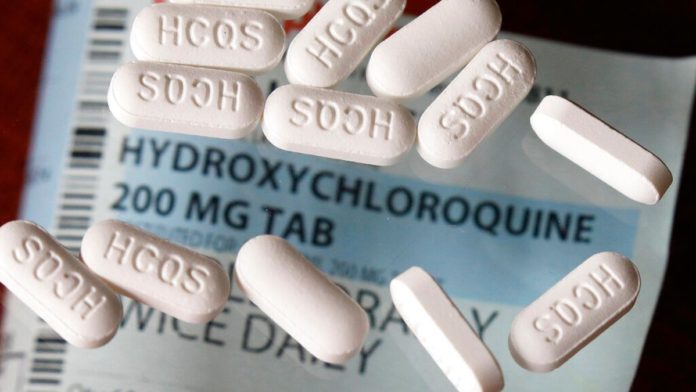Recently, the new trial that had recently started testing a number of existent malaria drugs for the treatment of COVID-19 symptoms which was funded by the University of Virginia and the National Health Service reported that no positive effects of the drugs have been seen.
Previously, the anti-malaria drug hydroxychloroquine was being promoted throughout the world for its potential to treat the coronavirus infection. Even the president of the United States Donald Trump showed support on its usage and testing in clinical trials.
Currently, there is not a single specific drug used for the treatment of the coronavirus infection. Health care workers worldwide are using a combination of medicines and therapies in order to manage the symptoms and treat the health condition effectively.
However, there had been a lot of false information spreading in different parts of the world regarding the treatment of COVID-19. For instance, a rumor originating in France was spread everywhere on the use of ibuprofen.
A vast majority of the population started to believe the ibuprofen worsens and aggravates the coronavirus infection and should be tossed in the trash as long as the COVID-19 pandemic is ongoing and not under control.
RELATED: Use of Disinfectants Linked to Higher Risk of Toxic Exposure
The World Health Organization also issued a statement addressing this rumor a few days back which clearly stated that there is no evidence regarding the adverse effects of the usage of ibuprofen on the coronavirus infection.
Furthermore, the WHO also cleared in the statement that any similar claims on other drugs are also likely to be false because all of them lack scientific evidence.
Therefore, in case of any coronavirus infection-related symptoms, it is mandatory to visit a health facility in order to start early treatment and avoid further spread of the infection. Self-medication should be avoided at all means as no drugs are confirmed to work.
Among all other medicines, the anti-malaria medication known as hydroxychloroquine was the most popular as it had also been embraced by many government officials from around the world.
The recent reports from the trial now tend to disapprove claims regarding hydroxychloroquine. Even though the trial was not a rigorous one, it was among the largest with over three hundred participants with COVID-19 who were being tested with hydroxychloroquine with or without azithromycin.
The researchers in the trial looked at the medical data of around three hundred and sixty-eight male veterans. All of the participants were confirmed to have the coronavirus infection and were hospitalized at Veterans Health Administration medical centers.
By April eleven, the participants had either died or had been discharged. Around twenty-eight percent of them who had been treated with hydroxychloroquine had passed away.
Secondly, twenty-two percent of the people getting azithromycin along with hydroxychloroquine also lost their lives. In comparison, only eleven percent of the participants receiving the current standard treatment for COVID-19 died.
Additionally, it was also noted that the use of hydroxychloroquine in the participants made no difference in the need or use of breathing machines or ventilators.
The side effects of hydroxychloroquine during the trial period were not noted. However, the researchers state that it may have possibly damaged other organs in the body as it has been previously known to have fatal effects including those on the heart which can result in sudden death.
It should also be noted that a similar trial set in Brazil was also stopped after the participants developed heart problems. In this trial, the drug chloroquine was tested, which is very similar to hydroxychloroquine and used for the same purpose.
This shows that the drugs may not be effective as they are made to look like, says Dr. Nasia Safdar who is a medical director of infection control and prevention at the University of Wisconsin.
She adds that it is important to be cautious when talking about drugs as their actual effects on COVID-19 are not known yet.




